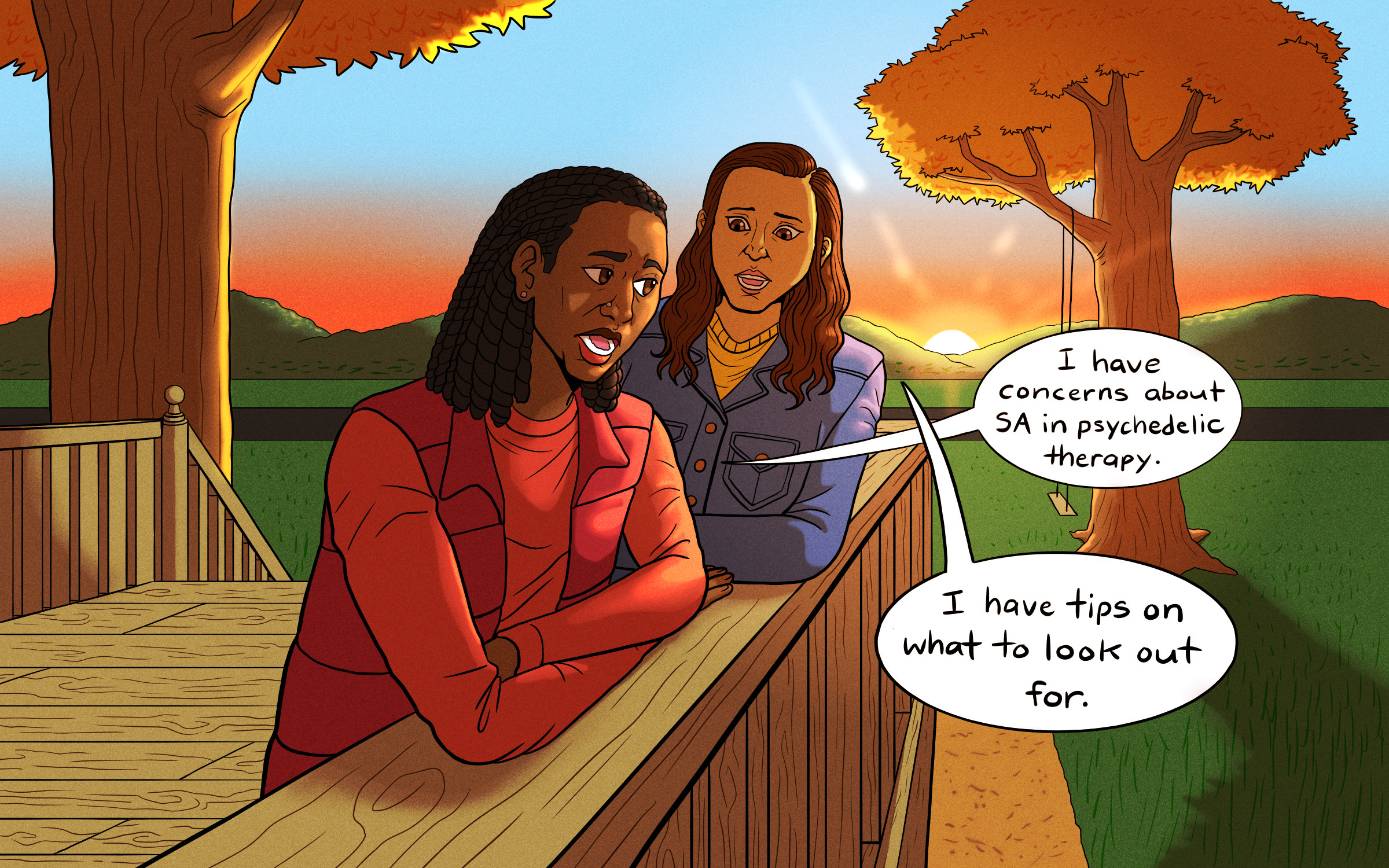In the battle against mental illness, clinical trials of psychedelic therapy are extremely promising. However, new research has shown a slew of ethical concerns around the use of psychedelics for therapeutic purposes.
Sexual abuse between psychedelic therapists and clients is one of the most prominent — and potentially widespread — issues that have been highlighted in a study by William Brennan, Margo A. Jackson, Katherine MacLean, and Joseph G. Ponterotto, which was published in the Journal of Humanistic Psychology. As psychedelic therapy becomes more common, it’s incredibly important that we learn how certain situations can be avoided.
Psychedelic therapy — whether MDMA-assisted or psilocybin-assisted — can take us into murky ethical grounds, and this mostly revolves around vulnerability and power. In your typical therapy sessions, therapists and psychologists meet the patient at their level so there’s equity in their session, making it easier for the patient to open up on their own terms and feel secure in their vulnerability. During psychedelic sessions, however, there is a significant power imbalance between the therapist and the client, plus the patients may have pre-existing mental health concerns, which could be compounded by the sometimes-incapacitating effects of a large dose of psychedelic.
Unfortunately, some psychedelic therapists have taken advantage of their patients’ susceptibility. Sexual abuse in psychedelic therapy has been reported as recently as 2018 in an FDA phase III trial of MDMA for PTSD. But this abuse isn’t exclusive to psychedelic sessions. Traditional talk therapy sessions have an alarmingly high rate of sexual abuse complaints too (around 7-12%). So, how can these situations of abuse be avoided overall?
These are the questions posed by Brennan, Jackson, MacLean, and Ponterotto in their study as they speak with 23 underground psychedelic therapists to try to find answers. Together, the researchers and therapists examine how ethical difficulties can develop in psychedelic treatment and try to find how to avoid them.
Some therapists reported that the long sessions plus the therapeutic use of touch can lead to a level of intimacy rarely found in traditional talk therapy. According to the writers, “Many [therapists] felt that this intimacy is part of what is therapeutic about psychedelic work. However, they noted that it has also led to ethical boundary challenges, often by inadvertently encouraging romantic feelings in the client.”
This may be even more difficult during MDMA-assisted therapy because of the substance’s effects, which include enhanced empathy, intimacy, and sexual desire — all of which might cause a patient’s boundaries to lower even more during the session. The therapist must always keep the patient’s increased vulnerability and lowered inhibitions in mind as to not cross professional boundaries.
Consent was one of the most important prophylactic considerations surrounding psychedelic therapy. In the study, it was recommended to set boundaries and consent ahead of time, before the session begins. One of the interviewed therapists recommended asking questions like, “Is it ok if I touch you?” or “Is it alright if I work with your body?” If the patient says no, then the therapist knows ahead of time what the patient is comfortable with. If the patient says yes, the therapist recommends asking a second time once the session is in full swing, but this time with more specific questions like “May I touch your shoulder?” or “Can I put my hand on your belly?”
Other therapists stressed the importance of being supervised during psychedelic sessions. They theorized that having two therapists — one male and one female — will constitute a gold standard practice in psychedelic treatment, and prevent as many sexual transgressions as possible.
Without a doubt, this emerging profession is a minefield to navigate — but these statistics can’t be ignored. When psychedelic substances are used in a session, the power imbalance between therapist and patient is higher. So if having a second and opposite-sex therapist present would help increase accountability, then creating a two-to-one ratio in the session might help the patient feel more empowered.
As stated in the study — psychedelic treatment is “rife with unique ethical challenges that require self-awareness and practical approaches that go beyond the training of a conventional psychologist.” Even though there’s still a long way to go, this study is certainly a step in the right direction. Hopefully, the right people will take notice of this data and develop more stringent guidelines for psychedelic practitioners and sessions.















